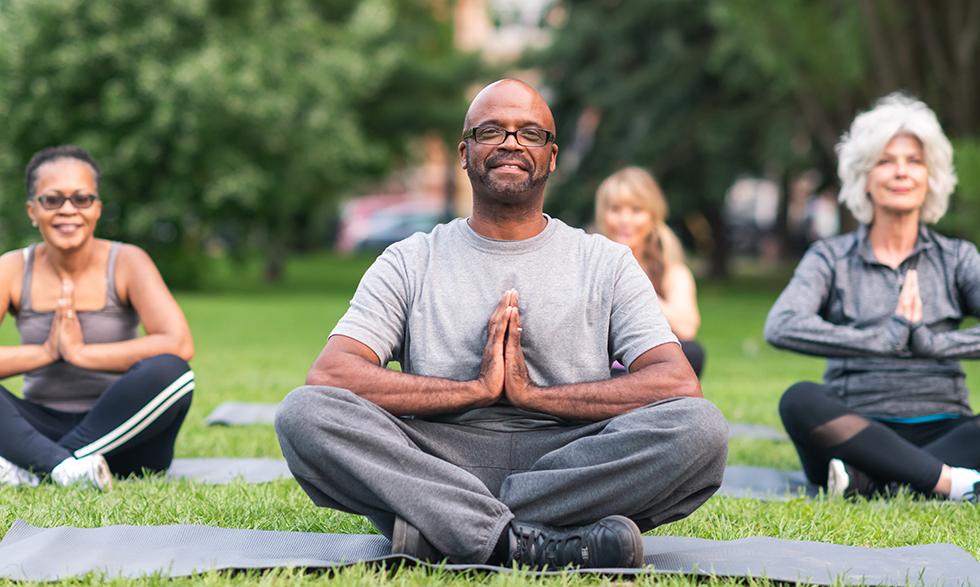KWTX’s latest feature, “Degrees of Science: Healthy Aging,” delves into the groundbreaking research and expert insights shaping the future of wellness for older adults. As the population ages, understanding the science behind healthy aging has become a critical focus for medical professionals and communities alike. This in-depth report explores the latest advancements in nutrition, exercise, cognitive health, and preventive care, offering viewers practical knowledge to enhance quality of life throughout the aging process.
Understanding the Science Behind Healthy Aging
Scientific research reveals that aging is not merely a passive decline but a complex biological process influenced by genetic, environmental, and lifestyle factors. At the core of this process is cellular senescence, where cells lose their ability to divide and function properly, contributing to age-related diseases. However, advancements in molecular biology have identified pathways, like telomere shortening and oxidative stress, that can be targeted to delay these effects. Experts highlight that interventions such as balanced nutrition, regular physical activity, and stress management can significantly influence these biological mechanisms, effectively slowing the clock at a cellular level.
Emerging studies also point to the role of inflammation and metabolic health as critical factors in maintaining vitality over time. The interplay between hormones, immune response, and mitochondrial function creates a dynamic system that, when optimized, supports longevity. Below is a brief overview of key biological factors involved in healthy aging:
| Factor | Role in Aging | Potential Interventions |
|---|---|---|
| Telomere Length | Protects chromosomes during cell division | Antioxidant-rich diet, exercise |
| Oxidative Stress | Damages cells and DNA | Supplement antioxidants, reduce toxins |
| Inflammation | Chronic low-level can accelerate aging | Anti-inflammatory foods, regular movement |
| Mitochondrial Health | Energy production and cell function | Caloric restriction, physical training |
Key Lifestyle Habits That Promote Longevity
Maintaining a balanced diet rich in fruits, vegetables, whole grains, and lean proteins remains one of the most effective pillars for extending lifespan. Nutritionists emphasize the importance of antioxidants, omega-3 fatty acids, and vitamins that combat inflammation and oxidative stress-two key factors linked to aging. Alongside diet, consistent physical activity tailored to individual ability strengthens cardiovascular health, boosts metabolism, and enhances mental well-being, creating a symbiotic effect that supports healthy aging. Experts also point to the critical role of hydration and sleep hygiene in repairing cellular damage and maintaining cognitive function.
Equally vital are stress management and social connections, which significantly impact longevity according to recent psychological studies. Chronic stress accelerates biological aging by increasing cortisol levels, while strong interpersonal relationships encourage feelings of purpose and emotional resilience. Incorporating daily mindfulness practices or hobbies can reduce the effects of stress hormones. Below is a quick overview of key lifestyle habits recommended by gerontologists and health experts to foster a longer, healthier life:
| Habit | Benefit | Recommended Frequency |
|---|---|---|
| Balanced Diet | Improves cellular health | Daily |
| Regular Exercise | Enhances cardiovascular fitness | 3-5 times per week |
| Quality Sleep | Supports memory and repair | 7-8 hours nightly |
| Mindfulness & Relaxation | Reduces stress hormone levels | Daily |
| Social Engagement | Boosts emotional health | Weekly or more |
Expert Recommendations for Maintaining Wellness in Later Years
Prioritizing physical activity is essential for maintaining vitality in the later stages of life. Experts underscore the value of regular, moderate exercise such as walking, swimming, or yoga to support cardiovascular health, enhance mobility, and boost mental well-being. Coupled with a balanced diet rich in antioxidants, lean proteins, and omega-3 fatty acids, these habits help fortify the immune system and reduce the risk of chronic illnesses, including diabetes and hypertension.
Additionally, fostering social connections and mental stimulation plays a pivotal role in sustaining cognitive function and emotional health. Engaging in community groups, pursuing lifelong learning, and practicing mindfulness techniques can alleviate feelings of isolation and promote resilience. Below is a quick reference table summarizing some expert-recommended daily practices:
| Wellness Category | Recommended Activity | Daily Goal |
|---|---|---|
| Physical Health | Brisk walking or light stretching | 30 minutes |
| Nutrition | Anti-inflammatory foods & hydration | 5 servings fruits/vegetables |
| Mental Wellness | Reading or puzzles | 20 minutes |
| Social Engagement | Group activities or calls | 1 meaningful interaction |
To Wrap It Up
As the quest for healthy aging continues to gain momentum, programs like KWTX’s Degrees of Science shine a spotlight on the latest research and practical strategies shaping the future of wellness. By bridging scientific insight with everyday application, these initiatives empower individuals to take proactive steps toward longer, healthier lives. Stay tuned to KWTX for further updates as the science of aging evolves and new discoveries emerge, offering hope and guidance for generations to come.
